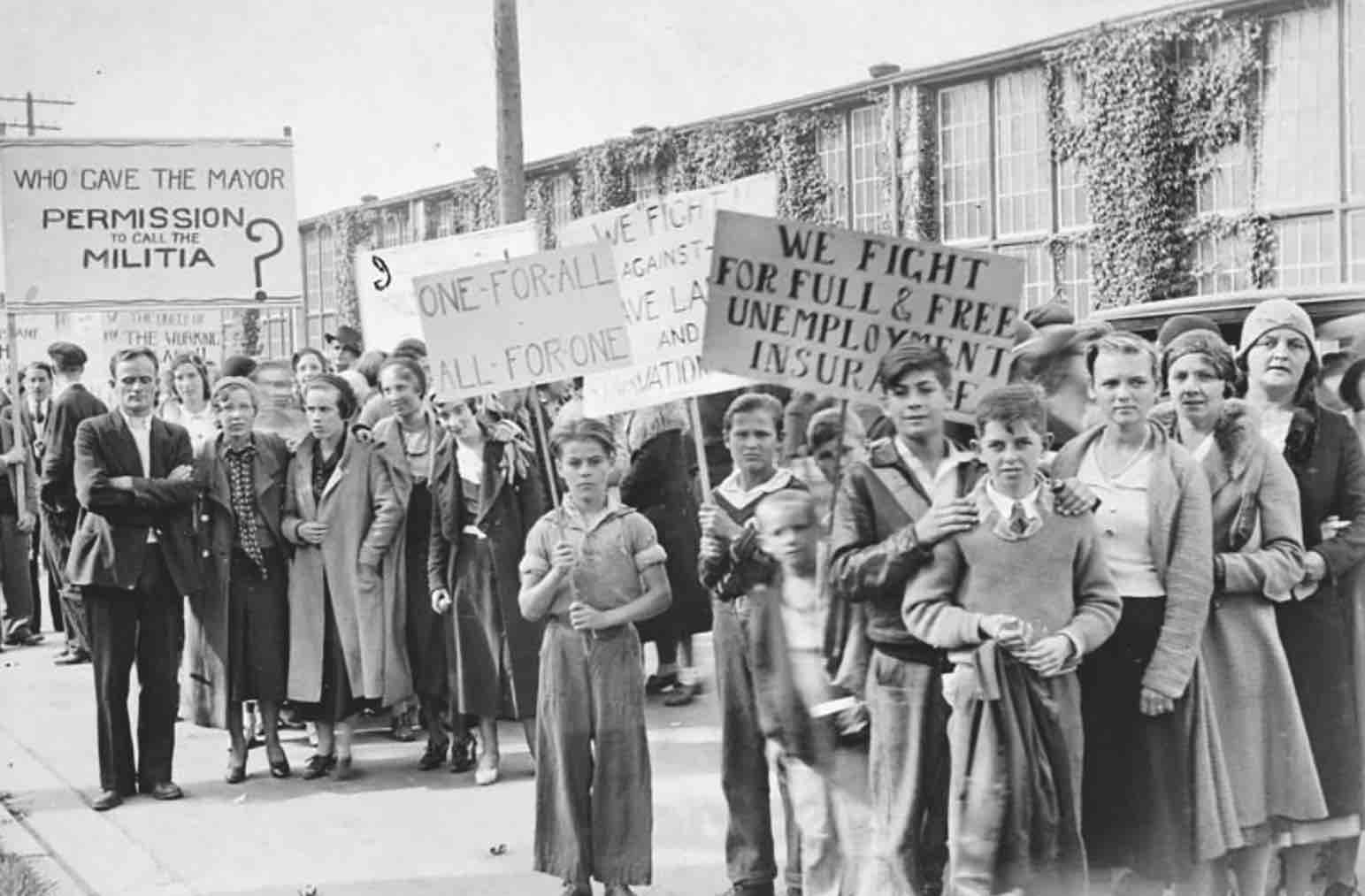Last year, labour organizations and progressives in Canada celebrated the centenary of the 1919 Winnipeg General Strike, one of the peaks of labour power in this country. But conspicuously absent among the celebrants were the official channels of Canada’s institutional churches. This was surprising to me, because the Winnipeg strike is such an important part of our Christian history.
In fact, you can’t tell the story of the strike without including the radical Christians who helped to organize it, led their congregations to the front lines and even ended up in jail cells because of it. These strikers were among the many early 20th-century Christians who had begun not only to care for the poor, but also to ask what made them poor in the first place. The answer, they believed, was capitalism, and so labour organizing became for them an expression of the Gospel.
You may unsubscribe from any of our newsletters at any time.
More on Broadview: How Christians should respond to a possible war with Iran
About a year before the strike, a group of Winnipeggers had become fed up with the established church, which they saw siding with bosses and profits (either explicitly or through their silence at the pulpit). Deciding it was time for something new, they signed pledges “to support an independent and creedless Church,” and founded what they called a Labour Church, which came to be pastored by Rev. William Ivens. (Ivens had been removed from his ministerial post at McDougall Methodist Church after stirring up controversy by supporting conscientious objectors to the First World War.)
A congregation intentionally made up of members of the working class, the Labour Church became the gathering site of disaffected workers during the general strike. Ivens joined the strike committee. It was the beginning of a decades-long relationship between radical Christians and the labour movement.
“It soon became evident that the Labor Church was in reality a spontaneous movement of the people,” Ivens wrote in 1921, calling the church a transition from individual piety to social action. Soon, labour churches were popping up across Canada thanks to another wayward Methodist, and soon-to-be Communist, Rev. A.E. Smith.
In the Canadian labour press of the 1920s and ’30s, Jesus was recast as an agitating carpenter who would have been a union organizer in the Canadian Prairies, a labour leader in Quebec, and as much of a threat to the authorities of Winnipeg as he was to the authorities of Rome.
While Canadians are more skeptical than ever of organized religion, there are exciting horizons for organized labour.
Labour churches provided space for workers to talk freely about their struggles, preachers publicly named the people and processes that kept workers down, and Christian communities took up money for strike funds and relief kitchens. Living out their devotion to Jesus the worker, pastors met members of their congregations on picket lines, in jails, at socialist meetings and even occasionally within the Communist Party of Canada. They chose a side.
Today, working-class issues are again driving a large portion of the political discourse, in Canada and around the world. This presents an opportunity for the church to both pursue justice and grow its profile and membership. Because while Canadians are more skeptical than ever of organized religion, there are exciting horizons for organized labour.
As Canadians leave mainline churches in droves, Christians should look back to the time when many thought following Jesus meant loudly throwing in with workers. With the labour movement stirring again, we should take a page out of the social gospel and go find Canadian workers — or better, like Ivens, organize them. A century old, the Labour Church still feels like the church of tomorrow.
This column first appeared in Broadview‘s March 2020 issue with the title “Bring back the labour church.”
Broadview is an award-winning progressive Christian magazine, featuring stories about spirituality, justice and ethical living. For more of our content, subscribe to the magazine today.















Thank you. I did not know there was a church called the workers church. Sure enough I quickly found some history of this movement. Though, I think any church that becomes deliberately exclusive based on gender or class or race- well it would really not be the body of Christ anymore. I don’t worry as much about decline of the mainline denominations as you do (I am a member of one). The national data on denominational decline clearly indicates it is indeed primarily a mainline church challenge. If I did a quick survey of all the churches in my home town, I note that they all serve the communities poor with equal zeal. the main line churches dont do it any better. However, the data suggests that the churches that give weight to the worship of God (which includes the worship of Christ), to proclaiming the gospel and to service are not declining to the extent the mainline churches are. Draw your own conclusions. I loved your reference to the social gospel. An indication that this minister and others like him knew that Christ and his gospel was the center of our justice work. Perhaps the mainline churches should jettison the term ‘social justice” and use social gospel. That would be a proclamation that we are capable of being both progressive and faithful.
If we are using a Social Gospel to change the world, we are going to fail. God won’t honour it. If we use our God given gifts to change lives to honour Christ, than by all means let’s work together.
Using the “Social Gospel” to subvert capitalism is anti-Christian, because it is used to defeat a ideology, not to “spread the Gospel”, which we are called to do.
Why would we want to re-cast Christ – is He not good enough to be the Son of God?
If find it interesting that the Labour Church is no longer functioning, I’m sure there are a number of reasons. If the “mainline” churches are in decline after the creation and fall of the Social Gospel movement, would it not stand that this movement will not “add” to the numbers? It seems, it could be part of the cause.
Ideologies that don’t materialize discourage people. The Jewish people who followed Christ to deliver them from Rome was a good example of this. One week they cried “Hosanna”, but the next week “Crucify Him”.
Let’s do what we’re called to do, preach that Christ paid the price of sin, so that we and others won’t have to. When we do, our Churches will grow.
Thanks for republishing this article about Labour Church back into circulation. I missed it on its first time around. My mother’s family lived in Winnipeg in 1919.
I want to know all that I can about Canada’s Church/Labour history as the CCF developed into a political presence at Federal and Provincial levels.